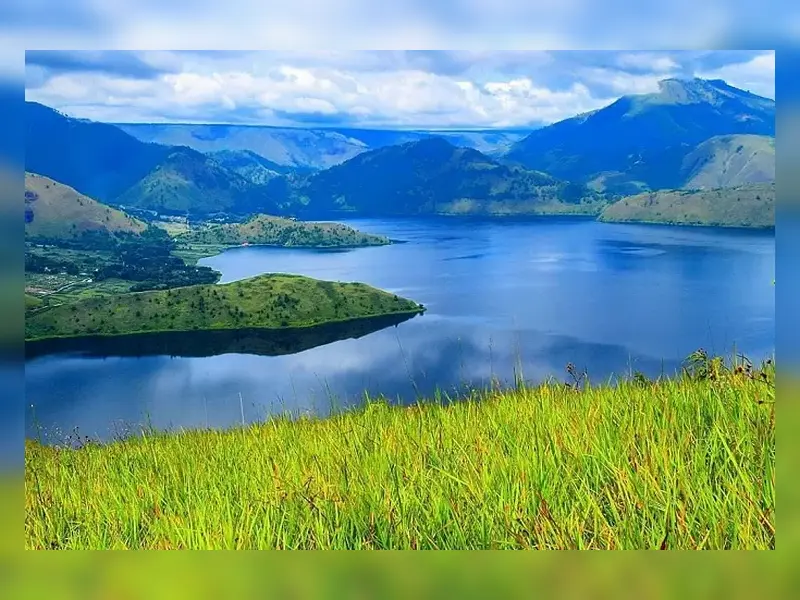
Great Idaho Gateway – Lake Toba, located in North Sumatra, Indonesia, is the world’s largest volcanic lake, formed by one of the most cataclysmic events in Earth’s history. Approximately 74,000 years ago, the Toba supereruption, a massive volcanic event, occurred. This eruption released an estimated 2,800 cubic kilometers of volcanic material, creating a caldera that eventually filled with water to form Lake Toba. Many believe the eruption had significant global climatic effects, including a volcanic winter that may have influenced human evolution.
Many consider the Toba supereruption one of the largest volcanic events in the last 25 million years. The eruption’s immense scale led to a volcanic winter, where ash and sulfuric acid aerosols in the atmosphere significantly reduced global temperatures. This climatic change might have caused a bottleneck in human evolution, reducing the human population to a few thousand individuals. This theory, though debated, highlights the profound impact of the eruption on our planet and its inhabitants.
In the center of Lake Toba lies Samosir Island, almost the size of Singapore. Formed by the uplift of the caldera floor, Samosir Island is a unique geological feature and a cultural heartland for the Batak people. The island and its surroundings are rich in traditional Batak culture, including unique architectural styles, music, and rituals.
“Super Mario Bros: The Fascinating Real-Life History of an Icon”
The area around Lake Toba is predominantly inhabited by the Batak people, an ethnic group with a rich cultural heritage. Specifically, the Batak Toba, one of the Batak sub-groups, have unique traditions, including intricate wood carvings and distinctive music. Additionally, traditional Batak houses, known as “rumah adat,” are characterized by their boat-shaped roofs and intricate decorations. The Lake plays a central role in Batak mythology and daily life, making it a cultural as well as a natural landmark.
Today, Lake Toba faces several environmental challenges, including pollution, deforestation, and the impacts of tourism. Consequently, efforts are underway to promote sustainable tourism and protect the lake’s natural beauty and biodiversity. Furthermore, conservation initiatives aim to balance the needs of local communities with the preservation of this unique ecological and cultural landscape.
In recent years, the Indonesian government has focused on developing Lake Toba as a major tourist destination. Infrastructure improvements and cultural heritage promotions aim to attract more visitors while ensuring the sustainability of the region. Lake Toba’s stunning natural scenery, combined with its
rich cultural history, makes it a unique and compelling destination for tourists from around the world.
Lake Toba is not just a natural wonder but a historical and cultural treasure, offering insights into the
Earth’s geological past and the resilience of human societies. Its formation, impact on global climate, and ongoing cultural significance make it a remarkable subject of study and appreciation.
“The Complete Information From Wikipedia About Lake Toba“